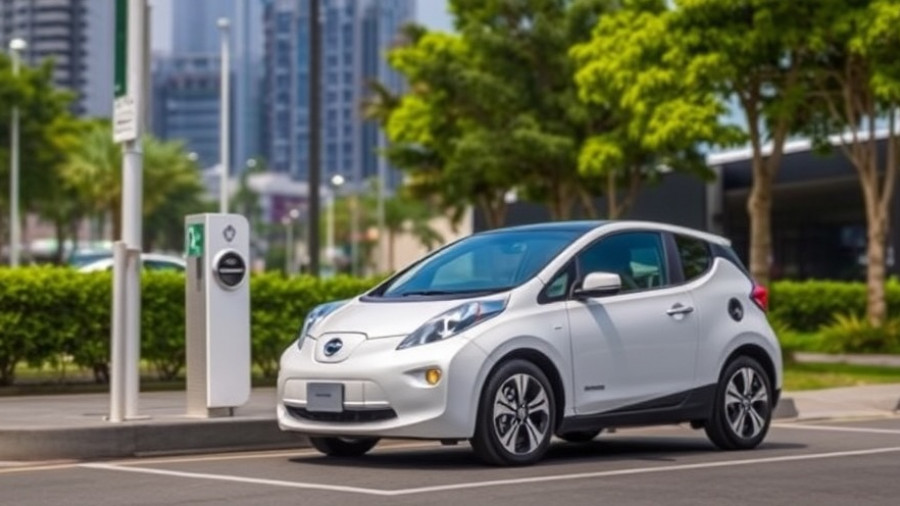
Unpacking the Surge in the Philippine EV Market
The electric vehicle (EV) sector in the Philippines is undergoing rapid transformation, supported by significant policy frameworks and investments. According to Edmund Araga, President of the Electric Vehicle Association of the Philippines (EVAP), the industry is on track for sustained growth, driven by the Electric Vehicle Industry Development Act (EVIDA) of 2022 and the Comprehensive Roadmap for the Electric Vehicle Industry (CREVI). These initiatives aim to establish the Philippines as a regional leader in electric mobility within the next decade.
Investment Trends: Building a Sustainable Future
Recent investments reflect growing confidence in the local EV market. The Board of Investments (BOI) spotlighted an exploratory initiative from a Chinese delegation intent on setting up local manufacturing for electric vehicles and renewable energy components. This underscores a broader trend of foreign capital entering the market in response to emerging opportunities in the EV landscape.
The enthusiasm is not limited to foreign investments. Mitsubishi Motors Philippines Corp. announced a substantial 7 billion Philippine pesos capital infusion earmarked for EV and renewable projects, demonstrating local manufacturers' commitment to the changing automotive landscape.
Charging Infrastructure: A Pillar of Expansion
A pivotal aspect of encouraging EV adoption is the development of efficient charging infrastructure. The Department of Energy (DOE) recently highlighted ambitious plans to deploy 4,000 EV charging stations across the nation in the next two to three years. This is part of a broader strategy aiming for 20,400 charging stations by 2040, to support an estimated fleet of 2.5 million electric vehicles. These objectives underscore the importance of not just having electric vehicles available but also providing the necessary infrastructure to support their use.
The Economic Ripple Effect of EV Adoption
The proposed Electric Vehicle Incentive Strategy (EVIS) signals a transformative economic framework, poised to create 700,000 jobs and generate an estimated 11.4 trillion Philippine pesos in economic output. This initiative highlights the potential for the EV sector to contribute to job creation, especially in assembly, battery production, and maintenance of charging stations. The integration of the EV sector promises not just environmental benefits but also socio-economic transformations that could resonate through various industries.
Addressing Myths and Encouraging Consumer Adoption
At last year’s Philippine Electric Vehicle Summit (PEVS), industry leaders tackled key barriers to consumer adoption. One vital aspect discussed was the need for public education to counteract myths surrounding EVs, which often cloud consumer perceptions and slow down the transition away from traditional fossil fuel vehicles. As more accurate information is disseminated, potential buyers must feel empowered to make informed decisions that align with sustainable practices.
Looking Ahead: Future Predictions for the Philippine EV Sector
The future of the EV industry in the Philippines appears bright, with technological advancements and policy support driving growth. The successful inclusion of EVs into the national transportation network will not only reflect a commitment to sustainability but also potentially position the Philippines as a hub for electric vehicle innovation in the ASEAN region.
As the industry prepares for the upcoming 13th Philippine Electric Vehicle Summit (PEVS), stakeholders must engage in collaborative dialogues, share best practices, and look to international partners for insights on successfully navigating this transformative era. The role of discussions surrounding safety, environmental impacts, and socio-economic benefits cannot be overstated as the country navigates its electric future.
As interest in sustainable solutions grows, both consumers and industry players should remain alert to the fast-evolving landscape of electric mobility in the Philippines. The time to invest in, and support, electric mobility initiatives is now, fostering a cleaner, greener future for generations to come.
 Add Row
Add Row  Add
Add 




Write A Comment